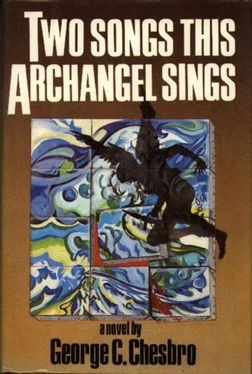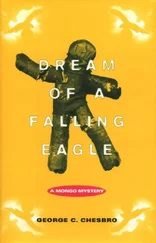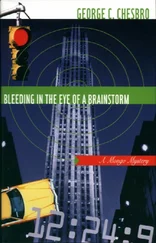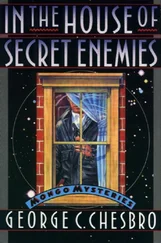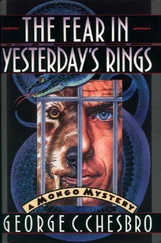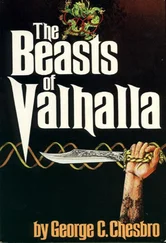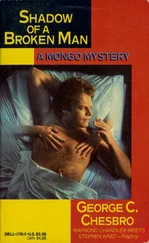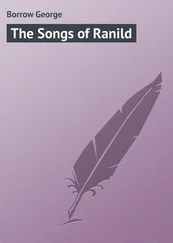George Chesbro - Two Songs This Archangel Sings
Здесь есть возможность читать онлайн «George Chesbro - Two Songs This Archangel Sings» весь текст электронной книги совершенно бесплатно (целиком полную версию без сокращений). В некоторых случаях можно слушать аудио, скачать через торрент в формате fb2 и присутствует краткое содержание. Жанр: Детективная фантастика, на английском языке. Описание произведения, (предисловие) а так же отзывы посетителей доступны на портале библиотеки ЛибКат.
- Название:Two Songs This Archangel Sings
- Автор:
- Жанр:
- Год:неизвестен
- ISBN:нет данных
- Рейтинг книги:3 / 5. Голосов: 1
-
Избранное:Добавить в избранное
- Отзывы:
-
Ваша оценка:
- 60
- 1
- 2
- 3
- 4
- 5
Two Songs This Archangel Sings: краткое содержание, описание и аннотация
Предлагаем к чтению аннотацию, описание, краткое содержание или предисловие (зависит от того, что написал сам автор книги «Two Songs This Archangel Sings»). Если вы не нашли необходимую информацию о книге — напишите в комментариях, мы постараемся отыскать её.
Two Songs This Archangel Sings — читать онлайн бесплатно полную книгу (весь текст) целиком
Ниже представлен текст книги, разбитый по страницам. Система сохранения места последней прочитанной страницы, позволяет с удобством читать онлайн бесплатно книгу «Two Songs This Archangel Sings», без необходимости каждый раз заново искать на чём Вы остановились. Поставьте закладку, и сможете в любой момент перейти на страницу, на которой закончили чтение.
Интервал:
Закладка:
"It looks like you were right about having a protector."
"Yeah. It looks that way."
"Nunchaku?"
"I'd say so. Tap-tap-tap. I told you the man was a master."
"What do you think of the missing thumbs?"
"I don't know."
"Trophies?"
"No. Not Veil's style."
"After seeing this, you still think you're an authority on Veil Kendry's style?"
"Your point is well taken. I just don't think Veil would take trophies."
"Shit. Why the hell would he cut thumbs off?"
I thought about it, said: "For the fingerprints. The faces were left unmarked so that we'd have positive identification, and the thumbprints will provide the same for somebody else."
"You think he sent them to somebody?"
"Just a guess."
"And probably a good one. It would mean that the person on the other end has access to fingerprint apparatus and a record of those men's prints."
"Yes. When and where did you find these jokers?"
Garth laughed without humor. "A patrolman found them this morning, in the alley outside the station house. They were hanging upside down with their ankles wedged into the grating of our fire escape. It seems that Kendry not only takes care of our business for us, he makes free deliveries. Very witty."
"Speaking of identification, did they have any on them?"
"Loads of it; credit cards, drivers' licenses, Social Security cards. All phony, of course, good work and untraceable. Each had over a thousand in cash in his wallet."
"I assume you ran a print check from the rest of their fingers?"
"Sure. Nothing."
"Interpol?"
"Nothing there, either."
It didn't surprise me. "So they don't have criminal records. What does that suggest to you, Garth?"
"What does it suggest to you?"
"That in somebody's perception they're good guys, not bad guys. They were thugs, but they were official thugs; not gangsters. They were trained by, and worked for, an agency of some government-probably our own."
Garth shrugged. "There are top-flight professional assassins around the world with no criminal records; that's why they're so successful and difficult to defend against. Hell, there's no way to tell if these guys were even Americans."
"I think they were."
"Almost all government agencies, at least the kinds that would use men like this, fingerprint their agents."
"Yes; precisely the reason Veil cut off the thumbs and mailed them in. Some agencies keep their own computer files, so neither Interpol nor the F.B.I, would have any record of their agents. I think there's a good chance these men were C.I. A. operatives. They were working domestic territory, which means that whatever they were involved in is a renegade operation. It wouldn't be the first time."
"What makes you think they were C.I.A.?"
I told Garth about the information I had gleaned from my trip to the library, stressing the common association between Americans fighting with the Hmong in Laos and the C.I.A. Garth listened attentively, nodded appreciatively when I'd finished.
"You've done good work, Mongo. I'm going to check out some things. For openers, I'll see if I can't get hold of an official, written copy of Kendry's complete service record."
"Good idea." Suddenly I could hardly keep my eyes open, and my legs hurt all the way up to my hips. "Can I get a ride back to the apartment?"
"You've got it. The squad car's waiting outside for you."
"Good," I said with a weary wave as I hobbled toward the door. "I need some sleep. In the morning, I've got to make some travel arrangements."
"Where you going?"
"Seattle."
"What's in Seattle?"
"A lot of Hmong, and maybe a few pieces of Veil's past."
7
Seattle seemed like a city sculpted from wet snow. The skies were leaden when I arrived and looked like they would stay that way for some time. Even more depressing than the dim winter light and biting cold was the realization that I was, in all likelihood, wasting time and money on an impossible task, trying to pick up a trail that was almost two decades cold. While it was true that there were thousands of Hmong in and around this city, I didn't know a single one. I had no way of knowing how many Hmong had known Veil and fought with him, or if any of them had escaped from Laos and made it to the United States. All I had was a recent photograph of a man the Hmong hadn't seen in half a lifetime; despite the fact that the younger Veil had been clearly recognizable to me in the painting, there was no telling how he had looked in those years, in or out of uniform, probably covered most of the time with mud and blood. I hated to think of what the odds might be against finding anyone who would recognize him.
But the symbols on the robe in the painting had been specific, and the logic of my trip still seemed inescapable; the symbols were associated with the Hmong people; there were more Hmong in Seattle than anywhere else; I was in Seattle. The fact that my feet were feeling better was at least some consolation, and I could now walk without a cane.
I learned that the Hmong had gathered together in a patchwork of interconnecting neighborhoods in the southeast sector of the city, and I found and checked into a hotel near the enclave. I knew that I could spend weeks working restaurants, bars, and other places where people gathered, and consequently needed a more systematic approach in my search for someone who might have known Veil. Figuring that I had certainly begun earning the ten thousand dollars Veil had left me, I began spending it, keeping a careful record of my expenditures in a small notebook.
I made up a short message offering a five-hundred-dollar reward to anyone who had ever known Veil and could supply information about him. Then I went looking for a pay phone booth that possessed a number of specific characteristics: it had to be fairly close to the hotel where I was staying, isolated enough so that it would be almost completely unused for one or two hours a day, out of doors but with some kind of shelter or windbreak nearby, and surrounded by enough open space so that I could monitor the movements of any people who might pass by.
I finally found what I was looking for in a small park about three-quarters of a mile from the hotel. There was a bank of three phones in the center of a small, lighted plaza circled by woods. Not too many people would be using those phones in the middle of winter, and there were more convenient phones for pedestrians to use on the sidewalks circling the park. All three phones were in working order, so I incorporated the number of the one on the right in my message, instructing anyone wishing to claim the reward to call that number between six and eight in the evening.
The next step was risky, but seemed unavoidable. I had registered at the hotel under a false name, paid cash, and made a few noises about being a salesman for a manufacturer of designer jeans. I wanted as few people as possible to see me, and none at all to be able to connect me with a search for a missing American who had fought with the Hmong in Laos. But I needed a printer, which meant that I could not avoid dangerous personal contact altogether. I found a print shop with an owner who was bilingual in English and Hmong. He translated my message into Hmong, and I left him with instructions to blow up Veil's photo to poster size, incorporate my message in both languages at the bottom, then print up a hundred copies on poster-weight paper as quickly as possible. I thought that the owner, a Hmong, reacted slightly when I gave him the brochure with Veil's photo, but I told myself that it could be my imagination and that narrowly escaping being burned alive would make anyone paranoid.
In any case, the posters were ready the next afternoon, as the man had promised. I paid for them and walked out with the bundle under my arm. The palm of my left hand, which had been resting on the butt of the Beretta in my coat pocket all the time, was sweaty, even in the cold air.
Читать дальшеИнтервал:
Закладка:
Похожие книги на «Two Songs This Archangel Sings»
Представляем Вашему вниманию похожие книги на «Two Songs This Archangel Sings» списком для выбора. Мы отобрали схожую по названию и смыслу литературу в надежде предоставить читателям больше вариантов отыскать новые, интересные, ещё непрочитанные произведения.
Обсуждение, отзывы о книге «Two Songs This Archangel Sings» и просто собственные мнения читателей. Оставьте ваши комментарии, напишите, что Вы думаете о произведении, его смысле или главных героях. Укажите что конкретно понравилось, а что нет, и почему Вы так считаете.
